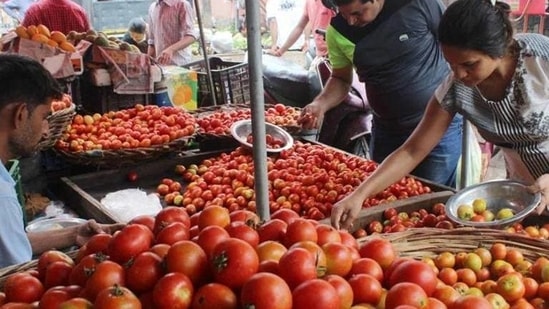Jul 22, 2024 02:54 PM IST
The Economic Survey said that food inflation has been a global phenomenon in the last two years.
The Economic Survey said that extreme weather, lower reservoir levels and crop damage affected farm output and led to higher food prices in the past two years. Unfavourable weather conditions impacted the production prospects of vegetables and pulses, it said.

Read more: Economic Survey 2024: 7.85 million non-farm jobs needed annually till 2030; over 7% fall in unemployment rate
The report noted, “In FY23 and FY24, the agriculture sector was affected by extreme weather events, lower reservoir levels, and damaged crops that adversely affected farm output and food prices. So, food inflation based on the Consumer Food Price Index (CFPI) increased from 3.8 per cent in FY22 to 6.6 per cent in FY23 and further to 7.5 per cent in FY24.”
Read more: Will AI lead to job cuts in India? Economic Survey warns these sectors
The Economic Survey said that food inflation has been a global phenomenon in the last two years and research indicates the rising vulnerability of food prices to climate change. Tomato prices surged in July 2023 due to seasonal changes, region-specific crop diseases such as white fly infestation, early arrival of monsoonal rain and logistics disruptions in isolated areas due to heavy rainfall, the document reasoned.
Read more: Black paint smeared on Biocon board after Kiran Mazumdar-Shaw opposes Karnataka job Bill. Video
The spike in onion prices was attributed to rainfall during the last harvesting season, delays in sowing, prolonged dry spells and trade-related measures taken by other countries.
The Survey said, “The prices of pulses, particularly of tur, increased due to low production over the past two years, caused by adverse weather conditions. Urad production was affected by slow sowing progress in the rabi season coupled with climatic disturbances in the southern states.”


